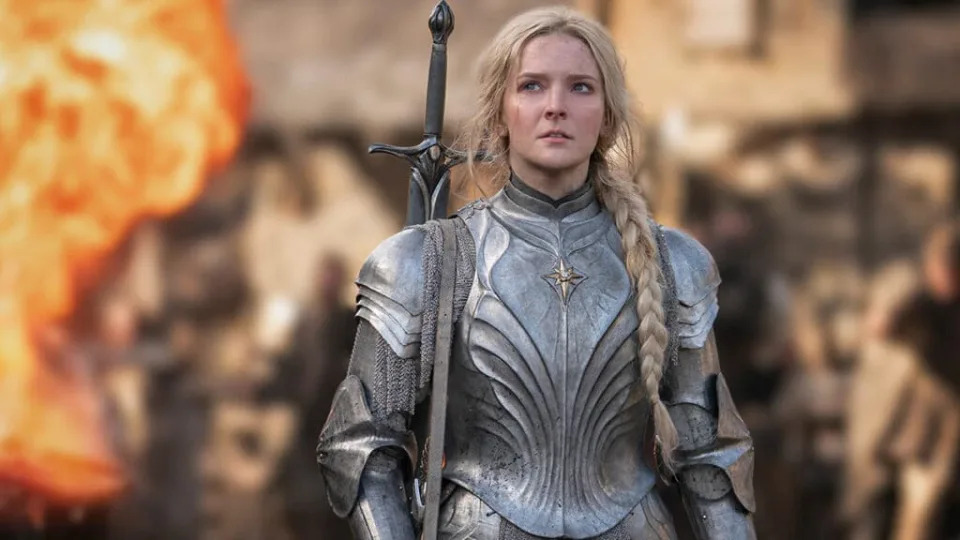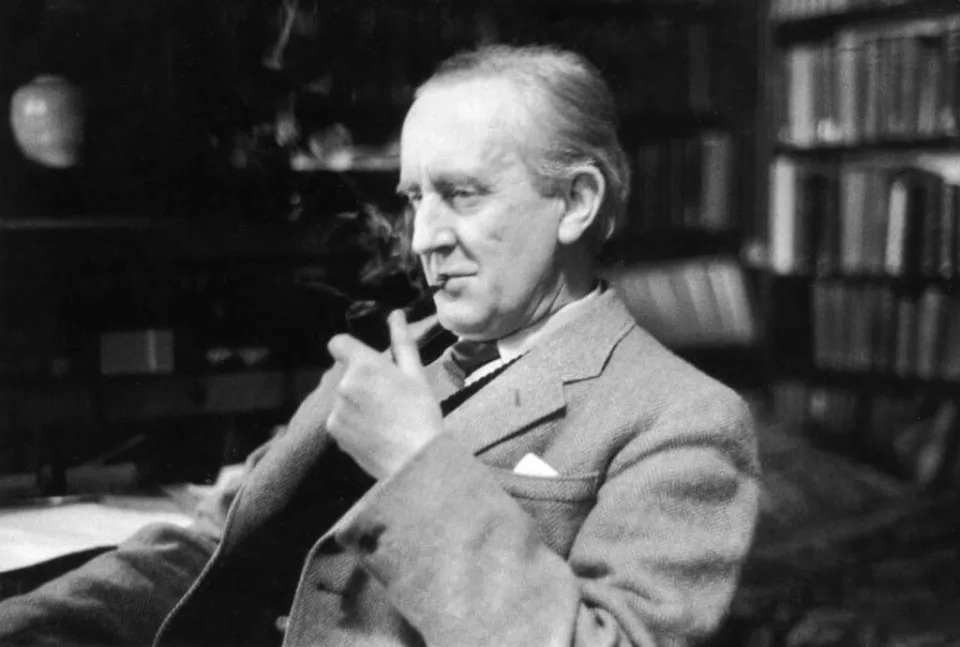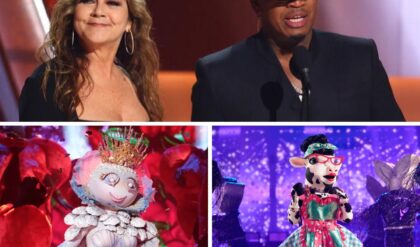A dark, malevolent force is gathering on the edge of Middle-earth. It’s more poisonous than the Witch-King of Angmar. More toxic than Smaug. More evil than Sauron himself.
That’s right, conservatives are marching on Endor.
You’ve probably heard something about the controversy over Amazon’s “The Rings of Power.” How some neoconfederate nudniks have taken up arms against the streamer’s new billion-dollar “Lord of the Rings” prequel series. Their big complaint? The elves in the show aren’t sufficiently Caucasian.
Red State, a far-right website, along with a bunch of other katzenjammer culture warriors, have been arguing that the series “perverts and corrupts” J.R.R. Tolkien’s vision of a medieval-like mythical universe by casting Black and Latino actors — Ismael Cruz Cordova, for instance, who stars as an elf warrior named Arondir — in roles they believe should be reserved for whites only, because that’s the skin color they claim Tolkien had given elves in the original “Lord of the Rings’ novels published back in the 1950s.
Morfydd Clark as Galadriel in “The Lord of the Rings: The Rings of Power” (Prime Video)
Some aren’t too thrilled with how women are depicted in the show, either, objecting to Welsh actress Morfydd Clark’s action-hero-style portrayal of Galadriel, the elfin princess played with a more feminine touch by Kate Blanchett in Peter Jackson’s big-screen “Lord of the Rings” adaptations in the early 2000s. Even Tesla founder-turned-conservative commentator Elon Musk has weighed in; although he didn’t have a problem with Clark, he groused on Twitter about how “every male character so far is a coward, a jerk or both,” adding that “Tolkien is turning in his grave.”
Of course, Tolkien has always had his fair share of obsessive-compulsive super-fans. Even back when Jackson’s films were first released, there were gatekeepers complaining about the New Zealand director’s divergences from the author’s sacred text (Aragorn never doubted his worthiness to be king in the novels!).
But this is something far more noxious. And much more stupid. This is criticism based entirely on skin color and gender stereotyping.
Look, I admit I’m frequently confused by the casting debates on the other side of the political spectrum around who should be permitted to play what sorts of characters. Can straight actors play gay roles? Or gay actors play straight roles? Should all trans characters be played by trans actors? Can a hearing actor play a non-hearing part? Honestly, I have no idea, and apparently a lot of actors are wrestling with the very same questions (Eddie Redmayne announced last year that playing a trans character in 2015’s “The Danish Girl” was a mistake — and he won a freaking Oscar for his performance).
I’ll also admit that I’m no expert when it comes to Tolkien’s oeuvre. I’ve seen every one of Jackson’s movies and all three episodes so far of “The Rings of Power.” I even read a couple of the books back in junior high school. But I’m still not entirely clear where Orcs come from or why they’re always in such a bad mood.
Still, I do know one thing about Middle-earth: It’s not real. It’s make-believe. It’s entirely made up. So why would it matter what color an elf’s skin might be? If conservative critics are capable of suspending their disbelief when it comes to the existence of eagle-riding wizards or giant trees that can walk and talk, they really should be able to cope with a dark-skinned elf without wailing about white cultural appropriation.
J R R Tolkien (Photo by Haywood Magee/Picture Post/Hulton Archive/Getty Images)
These critics claim they aren’t being racists. Their complaints, they insist, are entirely literary; they are merely objecting to Amazon ruining a story they’ve long cherished by bastardizing it with trendy lefty ideological tics, like diversity and equity and feminism. They believe they are metaphorically standing their ground in the Mines of Moria, battling a Balrog monster of wokeness, bellowing to the liberal elite: “You shall not pass!”
But I wonder what Tolkien himself might make of all this sturm und drang supposedly in defense of his fantasy-fiction masterpieces. Over the decades, there’s been some smack talk about Tolkien’s own supposed racist tendencies — suggestions that his Orcs were modeled on wartime anti-Japanese agitprop and that his dwarves flirted with anti-Semitic tropes. The guy was a tweedy professor of Anglo-Saxon literature at lily-white Oxford University in the 1940s and 1950s — it wouldn’t be surprising if he were a bit of a racist.
But the truth is, Tolkien was a ferocious foe of Nazi racial theories (he called Hitler a “ruddy little ignoramus”) and famously slapped back a German publisher interested in printing a German-language edition of “The Hobbit” in 1938 — but only if Tolkien could offer assurances that he had no Jewish blood. “I regret that I appear to have no ancestors of that gifted people,” Tolkien replied, telling the publisher to go climb an Ent.
I suspect Tolkien would be pretty ticked off at his would-be defenders on the right. After all, “The Lord of the Rings” is about nothing if not different races — some with pointy ears, others with furry feet — working together to defeat a common evil enemy.
Even the Eye of Mordor must be rolling at this Red State nonsense.







